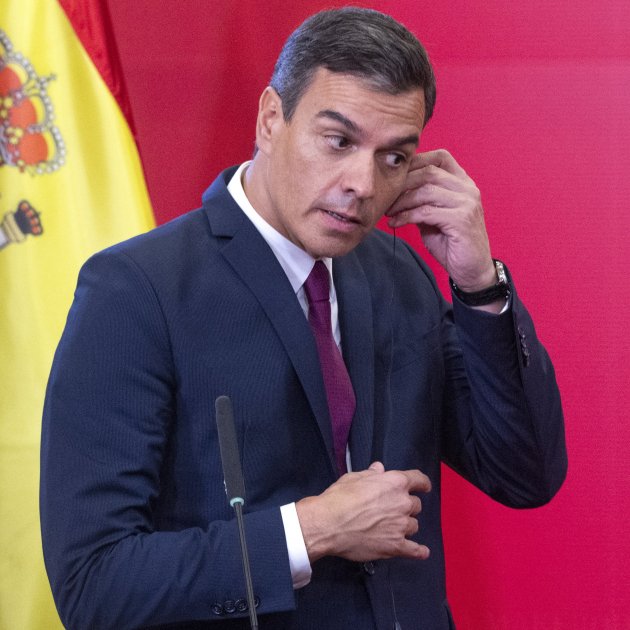It is no surprise to anyone to hear that the Spanish prime minister, Pedro Sánchez, is not a supporter of the independence of Catalonia. Since his arrival at the head of the Spanish executive in 2018, the president has expressed himself often enough on the matter himself to remove all doubt. But his rejection of this territorial division also has side effects that are felt beyond national borders. And in his rejection of Catalan independence, there is also a second victim: Kosovo. This country, which declared its desire to separate from Serbia in 2008, has been recognized as an independent country by the vast majority of the European Union. Spain continues to stand out, remaining in the 'no' category alongside Greece, Romania, Slovakia and Cyprus, and thus, as the European Parliament said in a report last year, constituting a barrier to improving the stability of the region.
It is an anomalous position in Europe whose rationale becomes easier to see when the similarities are examined between the situation in Kosovo and the Catalan conflict, with regard to Serbia and Spain respectively. Kosovo's independence was achieved through a unilateral declaration almost fifteen years ago, which Serbia has never come to recognize, despite the fact that it does not actually control the territory. On this point, prime minister Pedro Sánchez spoke on Monday to reiterate his refusal to go down this route. "We consider that a unilateral declaration of independence, like the one that took place here, and this is the legitimate opinion of the Spanish government, violates international law," he defended. "Accordingly, we cannot be in favour of the recognition of Kosovo." Sánchez made this comment after meeting with the prime minister of Albania, a country that takes the opposite position to Spain.
The Kosovo solution also requires dialogue
Sánchez's rejection of this path is, then, necessary in order to have arguments to position himself against any independence in Catalonia in the future. Now, to resolve the situation between Kosovo and Serbia, the Spaniard opts for a recipe that he also defends at home: dialogue. Thus, during his words this Monday he also sought to "encourage" Belgrade and Pristina to make effective "the dialogue that they have started and which we hope will lead to success". A strategy that for Catalonia has not yet provided many solutions to the political conflict.
Last Friday, during Pedro Sánchez's meeting with his Serbian counterpart, Aleksandar Vučić, the Spanish PM also transmitted the same message. "We support Serbia in everything to do with Kosovo," he assured, adding that "the territorial integrity of nations must be respected and international law must be respected." In fact, he stated that Spain and Serbia are united by "the conviction to guarantee respect for international law and the sovereign integrity of states, the territorial integrity of states." And it is that, on the Kosovo issue, Sánchez and Vučić are closely bound, unlike in the meeting with the Albanian prime minister, before whom Sánchez was forced to reiterate that he respected the "opinion" of the Balkan government and its people in order not to injure sensibilities.
Sánchez places himself "above the International Court of Justice"
Despite the Spanish PM's polite assertion that a country's opinion for or against the recognition of Kosovo is equally valid, the International Court of Justice in The Hague sees it differently, as Catalan president in exile Carles Puigdemont pointed out today in a tweet. Puigdemont noted that the court's 2010 ruling on Kosovo stated that "the adoption of the declaration of independence of February 17th, 2008 did not violate international law because international law does not contain any prohibition on declarations of independence". What the Spanish PM calls the "legitimate opinion of the Spanish government" is a view that has been rejected in international law, and thus the exiled Catalan president asserts that Sánchez is thus placing himself above the International Court.
